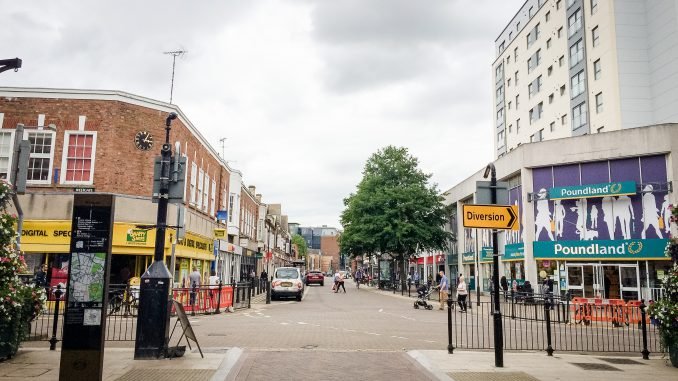
Theresa May’s plan for the United Kingdom’s divorce with the European Union brought up the pound, even if temporarily. Economist Gitanas Nausėda says that one of the points in the plan is particularly unfavourable for Lithuanian immigrants.
On Tuesday Theresa May pledged that the UK would withdraw from the EU common market which guarantees free flows of goods, capital, services and people within the Union.
The British Prime Minister also stated that she wants a free trade agreement with the EU, as well as other trade agreements around the world.
Some analysts earlier mused that even if the UK fails to come to terms with the EU on a free trade agreement, it could trade with the Union based on World Trade Organisation (WTO) regulations.
At first glance that would not be difficult to achieve, the UK would simply need the same quotas and tariffs applied as when it was in the EU.
However if the UK would decide to, for example, support its farmers and suppress imports from abroad, it would lead to new negotiations, this time in the WTO format and those can be just as difficult as that of Brexit itself.
Furthermore on Tuesday PM May confirmed that the UK parliament would vote on the final agreement regarding Brexit which should be agreed on over the next two years.
The members of the British parliament have earlier said that they intend to neither oppose the initiation of Brexit, nor the agreement which will be reached during negotiations with the EU.
Vetting
Advisor to the president of bank SEB G. Nausėda says that for Lithuanians who have already emigrated or plan to do so, the fifth point of T. May’s plan would have the most impact.
“I believe that as soon as the UK regains control it will initiate a vetting policy akin to the United States and many other developed countries. One beneficial regime for qualified labour force which is needed and is attempted to attract. And a very different one for those who cannot boast of such qualifications, those who are not in demand,” he told Delfi.
For those planning to depart to the UK, the economist recommended to consider what they intend to work as.
“Firstly it would be best to think so that it wouldn’t be as is now. In many cases our people do not work there based on their qualifications and are simply wasting human capital. In other words they are unable or unwilling to use the educations they received in Lithuania or the situation simply does not permit working based on their education,” said G. Nausėda.
He added that in such a case people are satisfied with working part time or low qualification work because they earn several times higher wages than working prestigious jobs in Lithuania.
What awaits?
G. Nausėda noted that those intent on working based on their qualification can suffer through and find such a job.
“However if the person has a pedagogical education or if it is work with people, it will nevertheless be difficult because requirements will be higher as well as there being a language barrier. However well you may speak, you have to know the language especially well to satisfy requirements,” he said, adding that expatriates could choose a different path – going to a different country.
“The UK isn’t the only target. With it withdrawing and starting a less friendly immigration policy, all the other states will remain in the EU and will remain appealing in terms of income levels,” said G. Nausėda.
The economist said that the UK will continue to view immigrating IT specialists positively even after Brexit due to the vast demand for them across the world.
“Even more low brow professions which require experience and qualification, for example car mechanics, high category metalsmiths, they will still be wanted.
That low brow labour will be less wanted does not mean only white collar labour will be required,” summarised Nausėda.
Temporary price jump
The pound sterling to US dollar exchange rate jumped by 3.05% on Wednesday morning. This was good news for expatriates sending funds back to Lithuania because a stronger pound means more euros appearing in the accounts of their relatives.
Nevertheless senior financial product sales specialist Andrius Bakanas doubts whether this is a reversal of current trends of decreasing prices.
“Fundamentally nothing has changed – the Scottish, financial service questions and such remain. I cannot imagine continued price increases. Particularly if we compare with the other side – the US economy is growing healthily, there are talks of raising interest rates, so the dollar has room for growth,” he told Delfi.
The 3% rise observed earlier Bakanas explains through markets tending to overvalue events.
“That is what we saw. There were too many short positions taken in pounds over the last few months and there was essentially nowhere for the pound to grow cheaper. Such a more positive sign gave this sort of result that those positions closed up,” explained the Swedbank representative.
Based on the SEB bank Market Stopwatch data, the UK recession index which shows the likelihood of economic downturn for the coming 12 months is currently at 22.5% despite being almost 50% in August.
In December prices in the UK rose by 1.6% compared to December 2015 and 0.5% compared to November.
Both inflation indicators exceeded forecasts by 0.2%. The likelihood that the Bank of England will raise interest rates is 38%.

Be the first to comment